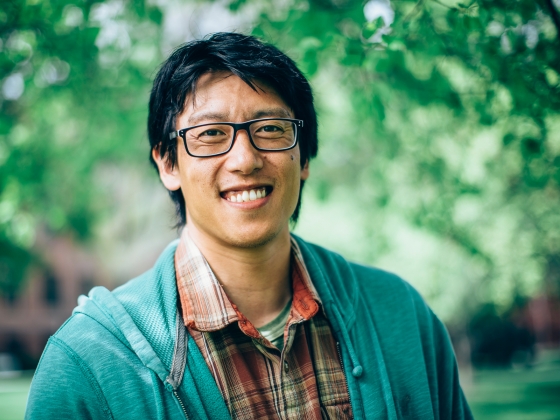Catching Up With an Alumnus

Tony Chang
Ph.D., Ecology & Environmental Sciences, 2017
 With a bachelor’s degree in mechanical engineering, a master’s in environmental science
and policy, and work experience in ecological restoration, fire management, and field
research, Tony Chang already possessed a strong skill-set. While he enjoyed his work,
a growing desire to understand the ecological ramifications and scientific reasoning
behind what he was doing motivated him to enroll in Montana State’s Ph.D. program
in ecology and environmental science. In 2015, he received a NASA Earth and Space
Science Fellowship that allowed him to fund his research on the die-off of whitebark
pine in the Greater Yellowstone Ecosystem. Chang completed his degree in summer 2017.
With a bachelor’s degree in mechanical engineering, a master’s in environmental science
and policy, and work experience in ecological restoration, fire management, and field
research, Tony Chang already possessed a strong skill-set. While he enjoyed his work,
a growing desire to understand the ecological ramifications and scientific reasoning
behind what he was doing motivated him to enroll in Montana State’s Ph.D. program
in ecology and environmental science. In 2015, he received a NASA Earth and Space
Science Fellowship that allowed him to fund his research on the die-off of whitebark
pine in the Greater Yellowstone Ecosystem. Chang completed his degree in summer 2017.
With a Ph.D. now on his list of credentials, Chang possesses a rare and exceptional combination of skills that helped him win a preeminent international fellowship for his post-doctoral work. Chang was one of five recipients of a 2017 David H. Smith Conservation Research Fellowship. The award will allow him to collaborate with researchers at Conservation Science Partners Inc., Colorado State University, and NASA where he will conduct an innovative research project on forest disturbances and how they affect water supplies across the West.
In His Own Words
About His Fellowship I was awarded the David H. Smith Conservation Research Fellowship, the premier international conservation biology postdoctoral fellowship that provides support for early-career scientists to expand their research skills and develop a better link between conservation science/theory and policy/management.
My time at MSU helped prepare me for this opportunity by providing me the network and resource pool of experts to explore my scientific interests to their fullest.
Why graduate school? I never dreamed that I would attend graduate school when I was an undergraduate seeking an engineering degree. I did not believe I had the constitution to fully immerse myself in a singular research topic. However, after working various federal and non-federal positions in field ecological restoration, fire management, and field research I found myself unsatisfied with the how little control I had despite loving what I did. I constantly questioned the rationale for what I was doing and was never provided good scientific reasons. The defining moment was when I was working as a wildland firefighter. I witnessed an entire landscape being destroyed with little understanding of the ecological ramifications. It was an experience that left me knowing that if I wanted answers to my questions, I would have to find them myself. Graduate school was the answer.
Montana State University was an obvious choice because not only does it have world class faculty, but also because it has everything for someone who is interested in spending time in the natural world. It’s important to live in a place that inspires you daily and this helped remind me why I am interested in the field of ecology and conservation biology.
If I knew then what I know now…advice to future graduate students: Focus. Think about a question that you really believe in and stay on track with that question. If there are recommendations from outside, ask yourself, does that answer my question? If not, think hard before diverging from your original inquiry.
